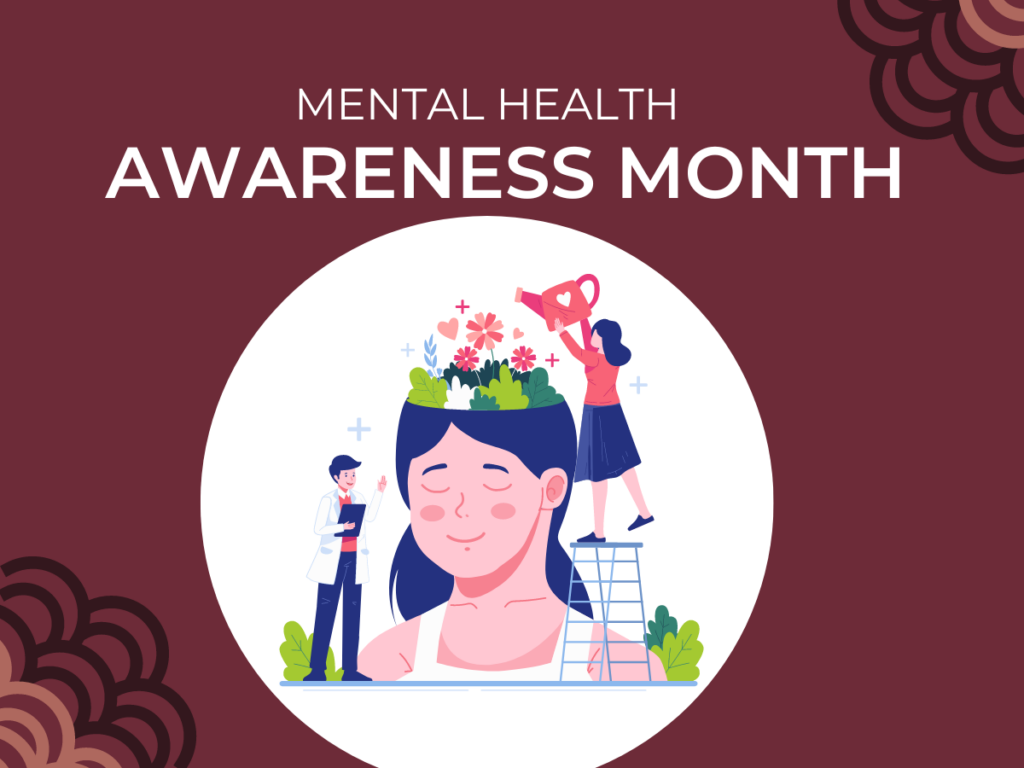May is Mental Health Awareness Month, a time to reflect on the importance of mental health and the impact it has on our overall well-being.
Throughout this month, we work to raise awareness, break down stigma, and encourage people to seek support for mental health challenges.
In this article, we’ll explore the long-term consequences of living with stress, particularly during menopause, and explore ways to manage these mental health-related issues.
What is stress?
The Oxford dictionary defines stress as “a state of mental or emotional strain or tension resulting from adverse or very demanding circumstances.” As you can imagine, too much stress can be very taxing on both our physical and mental health.
The long-term consequences of living with stress
Stress is all too common in today’s modern world with all its demands –– so it’s unlikely we can avoid it altogether. However, we should try to prevent from becoming chronic.
Chronic stress is all-consuming that can lead to poor health outcomes. When the body’s stress response is continually activated, it can cause a range of physical and mental health issues, including:
Cardiovascular problems
Chronic stress can contribute to cardiovascular issues such as high blood pressure, increased heart rate, and a greater risk of heart disease.
Immune system suppression
Stress weakens the immune system, making you more likely to develop illnesses and infections.
Digestive disorders
Stress can lead to gastrointestinal issues such as irritable bowel syndrome (IBS), indigestion, or heartburn.
Mental health conditions
Long-term stress can increase the risk of anxiety, depression, and other mental health disorders. The impact of chronic conditions such as this is is significant, and it’s crucial to understand how it can affect specific populations, such as women going through menopause.
How does stress show up in menopause?
We know that the transition into menopause can include a range of physical and emotional changes. Stress can exacerbate these symptoms, leading to an even more challenging experience for women going through menopause.
During menopause, hormone levels fluctuate, causing changes in the body and mind. Estrogen, a key hormone in women’s health, plays a role in regulating mood and response to mental health conditions. As estrogen levels decline during menopause, women may experience heightened sensitivity to mental health conditions. This can lead to increased anxiety, irritability, and mood swings.
Does stress increase or exacerbate menopause symptoms?
Research suggests that higher levels of stress can indeed exacerbate menopause symptoms. Women who experience chronic stress during menopause may find that their hot flashes are more frequent or intense. Their mood swings more pronounced. This can also lead to sleep issues, which in turn can worsen other menopause symptoms.
The interplay between stress and menopause creates a vicious cycle where the condition worsens menopause symptoms, and these symptoms, in turn, increase stress. Breaking this cycle is crucial to improving overall well-being during menopause.
How can I manage stress during menopause?
Managing stress during menopause requires a holistic approach that addresses both physical and mental health. Here are some strategies to help reduce stress and alleviate menopause symptoms:
Regular exercise
Physical activity can reduce stress and improve mood. Activities like yoga, walking, swimming, or strength training are beneficial.
Healthy diet
A balanced diet of fruits, vegetables, whole grains, and lean proteins can support overall health and reduce stress.
Adequate sleep
Prioritize good sleep hygiene by going to bed and waking up at the same time every day, creating a relaxing sleep environment, and avoiding that evening latte. It’s also important to limit screen time at night, as the light from our devices can disrupt sleep patterns as well.
Mindfulness and relaxation techniques
Practices such as meditation, deep breathing, mindfulness, and cognitive behavioral therapy can help manage mental health conditions and promote relaxation.
Social support
Connect with friends, family, support groups, and others in our social network to share experiences and seek emotional support.
Professional help
If it becomes overwhelming, seek help from a mental health professional or counselor. They can provide guidance and coping strategies tailored to your needs.
May is a time to focus on mental health awareness, and understanding the long-term consequences of abandoning it, particularly during menopause, is crucial.
By addressing mental health conditios and adopting healthy habits, we can navigate menopause with greater ease and improve our overall quality of life. Remember, seeking support and taking steps to manage stress are vital to maintaining good mental health!



